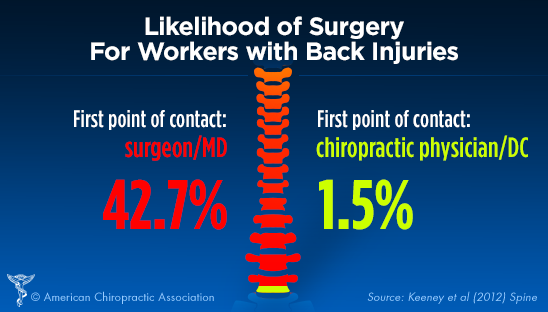Understanding Nourishment'S Role In Back Pain Monitoring: Beneficial Foods And Foods To Prevent
Understanding Nourishment'S Role In Back Pain Monitoring: Beneficial Foods And Foods To Prevent
Blog Article
Created By-Locklear Jordan
When it comes to handling your neck and back pain, the food selections you make can considerably impact how you feel every day. Picture being able to ease your pain just by adjusting what you eat. By recognizing the function of nourishment in back pain monitoring and understanding which foods to incorporate or stay away from, you can take aggressive actions towards a healthier and more comfortable way of living. private concierge alternative medicine doctor austin tx in between nourishment and back health and wellness is a lot more extensive than you might recognize-- allow's check out just how specific foods can either relieve or intensify your pain in the back.
Significance of Nutrition in Pain In The Back
Nourishment plays an important role in managing pain in the back. Your diet can substantially affect inflammation levels and overall discomfort levels in your back. Taking in a balanced diet plan rich in nutrients like vitamins D and K, calcium, magnesium, and omega-3 fatty acids can help reduce swelling and reinforce bones, which are important for back wellness.
In addition, keeping a healthy weight with proper nourishment can reduce stress on your spinal column, lowering the threat of neck and back pain.
Moreover, specific nutrients like anti-oxidants located in vegetables and fruits can assist fight oxidative anxiety and advertise healing in the body, consisting of the back muscular tissues and spinal column.
On the other hand, consuming extreme quantities of refined foods, sweet drinks, and unhealthy fats can contribute to inflammation and weight gain, worsening back pain.
Foods to Consume for Back Health And Wellness
To support a healthy back, integrating nutrient-rich foods into your day-to-day dishes is crucial. Consisting of foods high in antioxidants like berries, spinach, and kale can help in reducing swelling in your back, easing discomfort and pain. Omega-3 fatty acids located in fatty fish such as salmon and mackerel have anti-inflammatory residential properties that can profit your back wellness.
Furthermore, consuming nuts and seeds like almonds, walnuts, and chia seeds provides vital nutrients like magnesium and vitamin E, which support muscle function and reduce oxidative anxiety. Integrating lean proteins such as poultry, turkey, and tofu can aid in muscle mass repair and upkeep, promoting a solid back.
Do not forget to include dairy products or strengthened plant-based alternatives for calcium to sustain bone wellness. Finally, moisten with plenty of water to maintain your spinal discs hydrated and operating efficiently. By including these nutrient-dense foods in your diet, you can nurture your back and support overall spinal health and wellness.
Foods to Prevent for Back Pain
Go with preventing refined foods high in added sugars and trans fats when looking for relief from back pain. These kinds of foods can contribute to swelling in the body, which may worsen pain in the back. Say no to sweet snacks sweet, pastries, and sugary drinks, in addition to junk food things like burgers, french fries, and fried poultry that are frequently loaded with trans fats.
In addition, avoid foods consisting of high levels of polished carbohydrates, such as white bread, pasta, and breads, as they can spike blood sugar level degrees and potentially intensify inflammation in the body.
It's additionally smart to limit your intake of foods high in saturated fats, like red meat and full-fat milk items, as they can add to swelling. Processed foods like delicatessens meats, chips, and packaged treats are typically high in saturated fats and should be eaten in small amounts.
Final thought
To conclude, taking notice of your diet regimen and making smart food choices can have a significant impact on managing back pain. By integrating nutrient-rich foods like berries, fatty fish, nuts, and lean proteins, and avoiding refined and sugary products, you can help in reducing inflammation and support overall back health and wellness. Remember, what you eat plays an important duty in just how you really feel, so make sure to prioritize your nutrition for a much healthier back.
